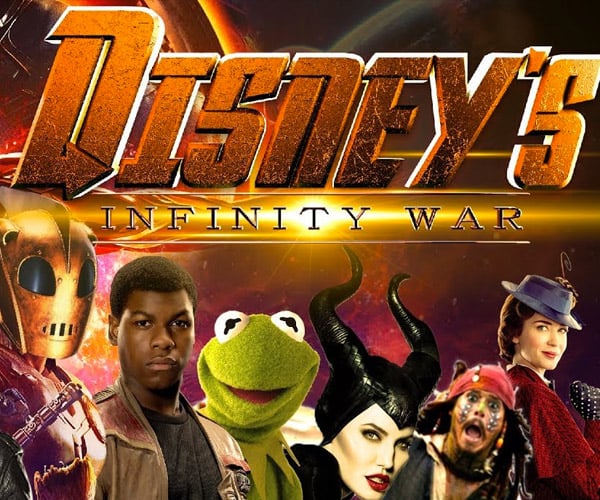
We started by considering 93 models from three leading companies: APC, CyberPower, and Tripp Lite. We’ve tested uninterruptible power supplies and surge protectors from these companies in the past, and all the power-product companies have long histories and reputations as reliable. Since a UPS is designed to be used in an emergency, choosing from a reliable brand is crucial to avoid buyer’s remorse at the worst possible time.
To whittle down such a massive list of candidates, we considered the most important factors that go into a great UPS:
Power management: We insisted that any UPS we tested use line-interactive topology, or automatic voltage regulation (AVR), a more advanced form of power management than that used by less expensive “standby” UPS models. AVR means that when power from a wall outlet briefly dips or surges outside of a specified range, a small transformer in the UPS acts like a buffer to compensate without relying on the battery; the UPS switches to battery power only when the transformer can’t handle the variation. This reduces wear and tear on the battery during frequent brownout conditions, prolonging its overall life and providing more-reliable power to sensitive gear like hard drives. Since AVR is available without a huge price premium, it’s a sensible feature to have to get the most from a UPS in the long term.
A UPS without some type of AVR is generally referred to as a “standby” UPS. That’s because the battery is always on standby, ready to jump in anytime the voltage from the wall outlet fluctuates outside a small predetermined range. A standby UPS is fine for many applications, but the battery inside may need to be replaced sooner, and it may not correct voltage fluctuations as quickly as an AVR model. We dismissed any standby models without testing them.
Battery capacity: Most UPS batteries are small, sealed, lead-acid batteries, not so different from a car battery. That makes them much cheaper than the lithium-based batteries in smartphones and laptops, but it’s also why they’re heavier and store less energy.

Manufacturers often publish run-time ratings that outline how long a UPS can keep various wattages running. Since most ratings are based on ideal conditions, we tested our top candidates at two different loads, 50 W and 300 W, to see how they managed in real-world use. Our 50 W load was meant to simulate powering a cable modem and Wi-Fi router. Our 300 W load is closer to a full workstation, as it adds a modern desktop (around 150 W), a 27-inch monitor (88 W maximum), and network-attached storage hard drives (60 W maximum).
Since the batteries will likely start to hold less energy at the three-year mark (and may hold noticeably less energy after the five years) most models we considered have replaceable batteries to extend the life of the UPS. Prices for name-brand replacements range from $30 to $60, and the process is simple enough for a novice to complete in just a couple minutes.
Power output: While battery capacity and runtime measure how long a UPS can supply power, the power output tells you how much it can power at any one time. Most models explicitly include their output in the name or model number in volt-amperes (VA). The smallest UPS models we found with the AVR feature we require output 650 VA, more than enough to run a modem and Wi-Fi router at home. For an upgrade pick, we looked for models with at least a 1,000 VA rating. VA ratings aren’t common in most people’s lives, but they’re power ratings along the same lines as the more-familiar watts (W). For a quick estimation when shopping, you can assume that a UPS’s wattage rating will be about 60 percent of its volt-amp rating. So a UPS rated for 685 VA can probably handle about 400 W. That’s plenty to keep a cable modem (25 W), Wi-Fi router (30 W), and laptop charger (65 W) up and running for a while.
Outlets: All outlets on a home UPS provide surge protection, limiting the amount of extra voltage that could reach and potentially damage anything plugged into them. But generally only half of the outlets will be connected to the battery backup in case of an outage—and are prominently marked as such. That’s why we focused on models that had at least eight outlets total, since you’ll have only four of them in a power outage. In most home offices, this shouldn’t cause a problem, but it does require some planning in terms of making sure the right things are plugged into the right outlets.
Power Quality: For each model we tested, we looked at the power output using a digital oscilloscope provided by Bitscope. This let us see how well the inverters in each UPS converted the DC energy stored into the battery into the AC power provided by the outlets. Specifically, the oscilloscope let us look at two aspects of power quality: which models introduced the least amount of electrical noise into the line, and how well the modified sine wave inverter in each model imitated the kind of power that comes out of a standard wall outlet. For our upgrade pick, we also required a pure sine wave inverter (see the next item).

Pure sine wave power: A modified sine wave (MSW) inverter turns the DC power stored in the battery into the AC power you need coming out of the outlets. Because MSW inverters are less expensive to make and work well for most devices, they’re the the most common type of inverter used in UPS units (including our top pick). But MSW inverters create only a close approximation of the kind of AC power that comes out of a wall outlet—it’s not quite the same. Most gadgets that charge with a power brick (including smartphones, tablets, and laptops) won’t care much, since the power brick does extra conversion anyway. But anything expecting AC power for moving parts like motors won’t work normally on an MSW inverter, and audio equipment can pick up buzzes of interference from them. And some home medical devices just won’t work with MSW power. In any of those cases, you need pure sine wave (PSW) inverters instead.
Pure sine wave inverters, and the UPS models that use them, replicate the smooth wave of power that comes from a wall outlet powered by a utility company. These inverters are more expensive to make and thus less common when it comes to inexpensive or occasional-use power sources. We’ve come across multiple online discussions discussing how to provide backup power for CPAP machines and whether MSW or PSW were better. We reached out to ResMed, makers of a variety of home respiratory care devices, to find out what they recommend. Amy Cook, the company’s marketing director, told us that many of the company’s newer products have power converters or even lithium-ion battery backups available. But if you plan on using a different power source, “older-generation PAPs (S8 and earlier) that are using modified sine wave inverters cannot power their respective humidifiers.” Given the importance, not to mention cost, of equipment like CPAP machines, we’d recommend you opt for a battery backup made by the same manufacturer, if available. If not, we prefer to stick to PSW inverters—like the one included in our upgrade pick—to avoid any problems.
Extra features: A basic UPS doesn’t need a lot of features to do its job, but other features we considered include status displays that show battery charge and remaining runtime right on the unit and power-management software that lets you monitor and manage a UPS (over USB) from your computer. Neither feature is crucial for a UPS in most homes—the power goes out and you know you have limited network or computer time to do what you need to do. But a status display is a nice-to-have feature that can help calm power anxiety, and power management software that works on any operating system future-proofs changes in your setup so that your UPS can be just as useful years down the line as it is the first day you plug it in.
Every UPS from a reputable brand comes with some basic surge protection built in, which is good because you can’t plug your UPS into a surge protector or plug a surge protector into a UPS. Unfortunately, most affordable UPS units don’t offer much protection compared with a dedicated surge protector. In previous tests, electrical engineer Lee Johnson took apart our UPS samples to examine their guts. Based on his assessment, we found that our picks should protect your equipment about as well, if not for as long, as basic surge protectors we’ve tested before.
via Wirecutter: Reviews for the Real World
The Best Uninterruptible Power Supply (UPS)











 Rev1 Ventures invested in a record number of startups in 2017 and its portfolio companies brought a combined $201 million revenue and new capital to Central Ohio – bringing cumulative economic impact since 2013 to $1.4 billion.
Rev1 Ventures invested in a record number of startups in 2017 and its portfolio companies brought a combined $201 million revenue and new capital to Central Ohio – bringing cumulative economic impact since 2013 to $1.4 billion.






